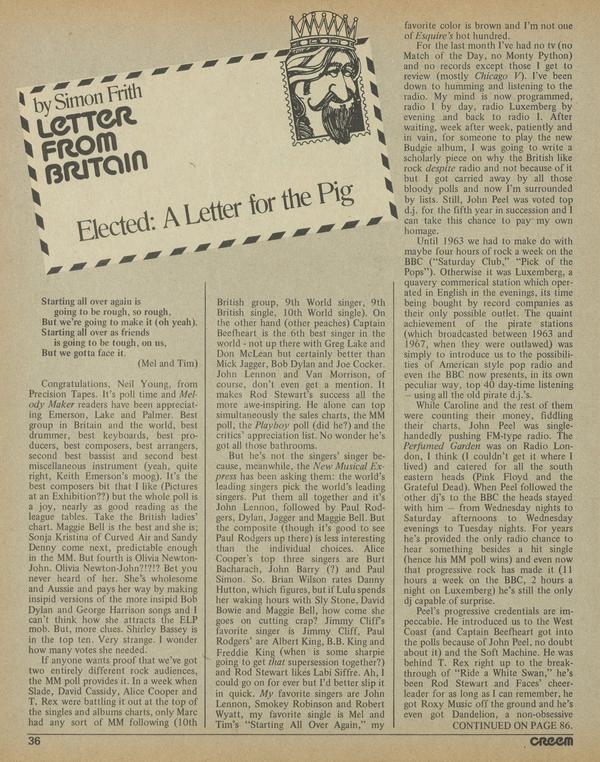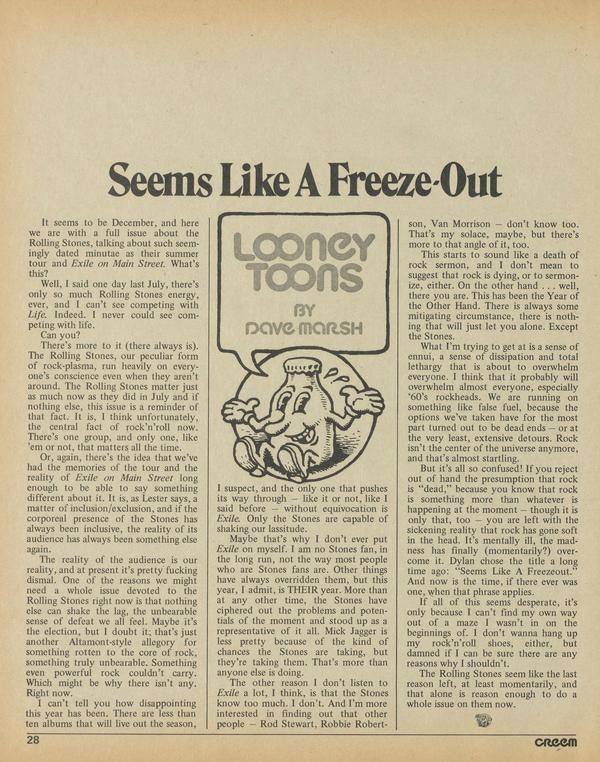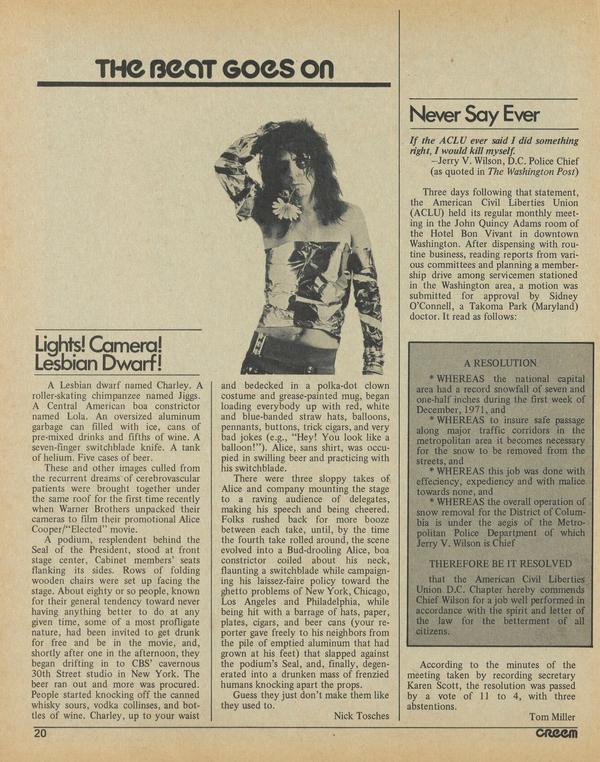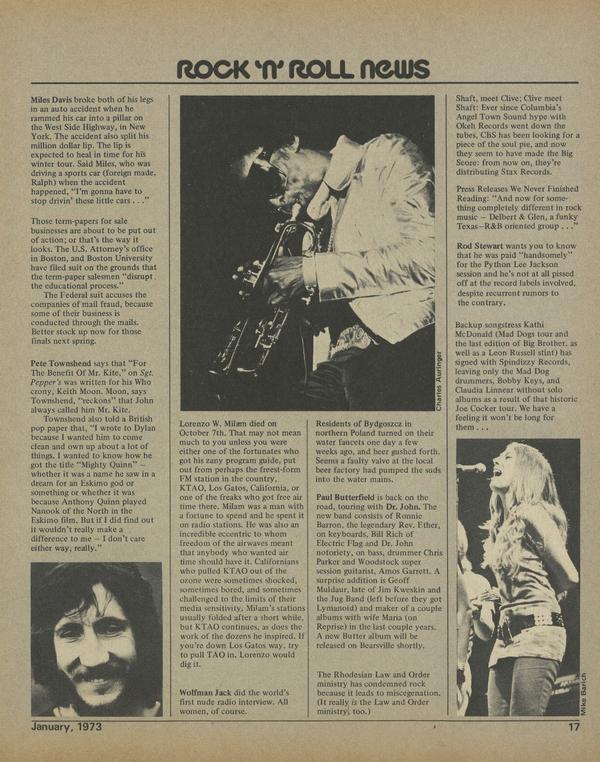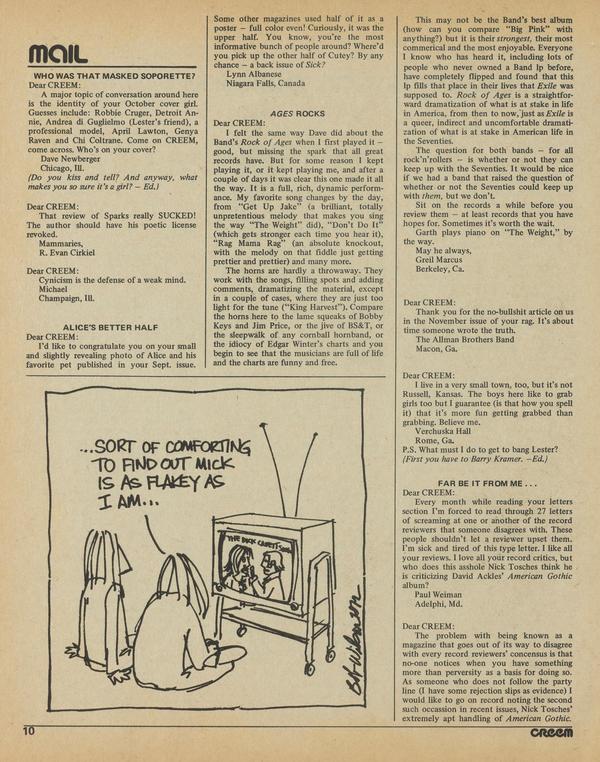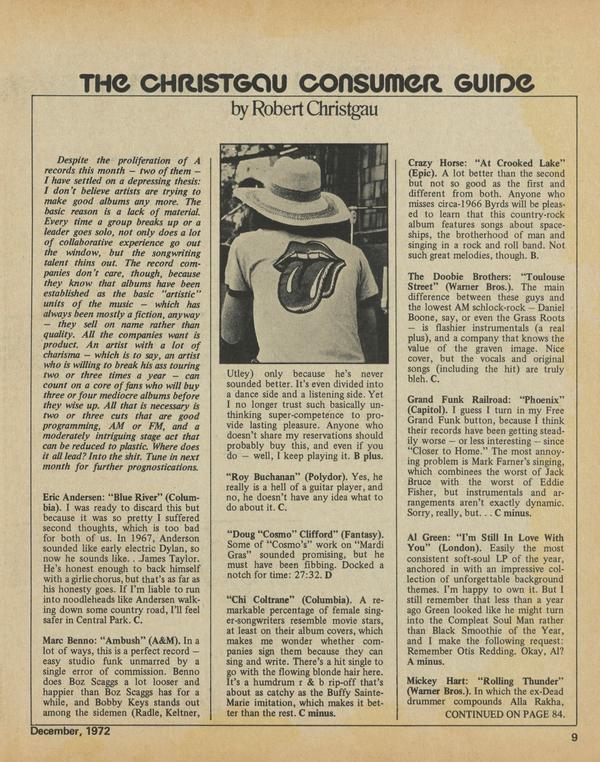Features
“Can’t Get No Satisfaction”
In the years after Altamont, however, l almost stopped listening to the Stones, and whenever I did listen the contradictions welled up in me.
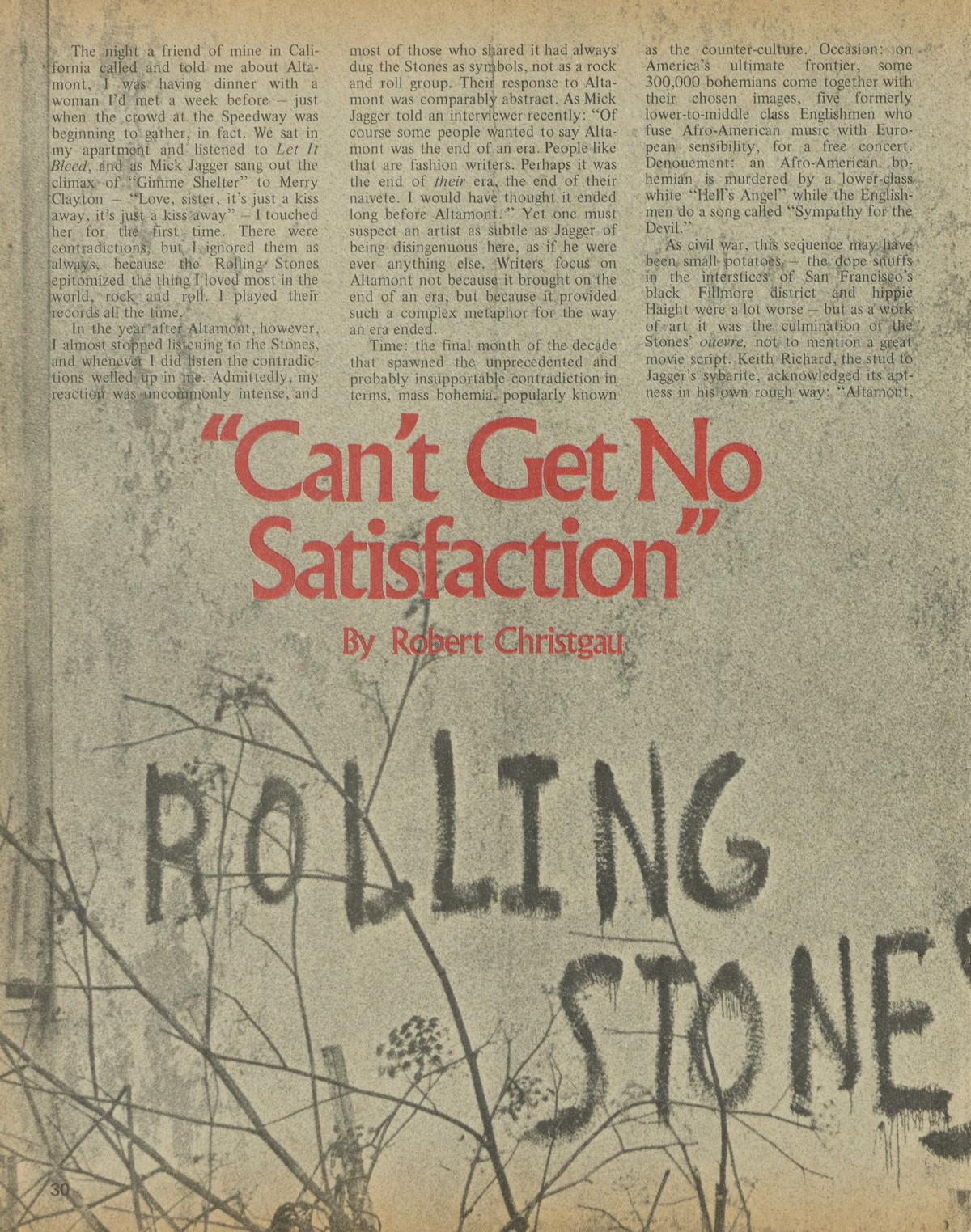
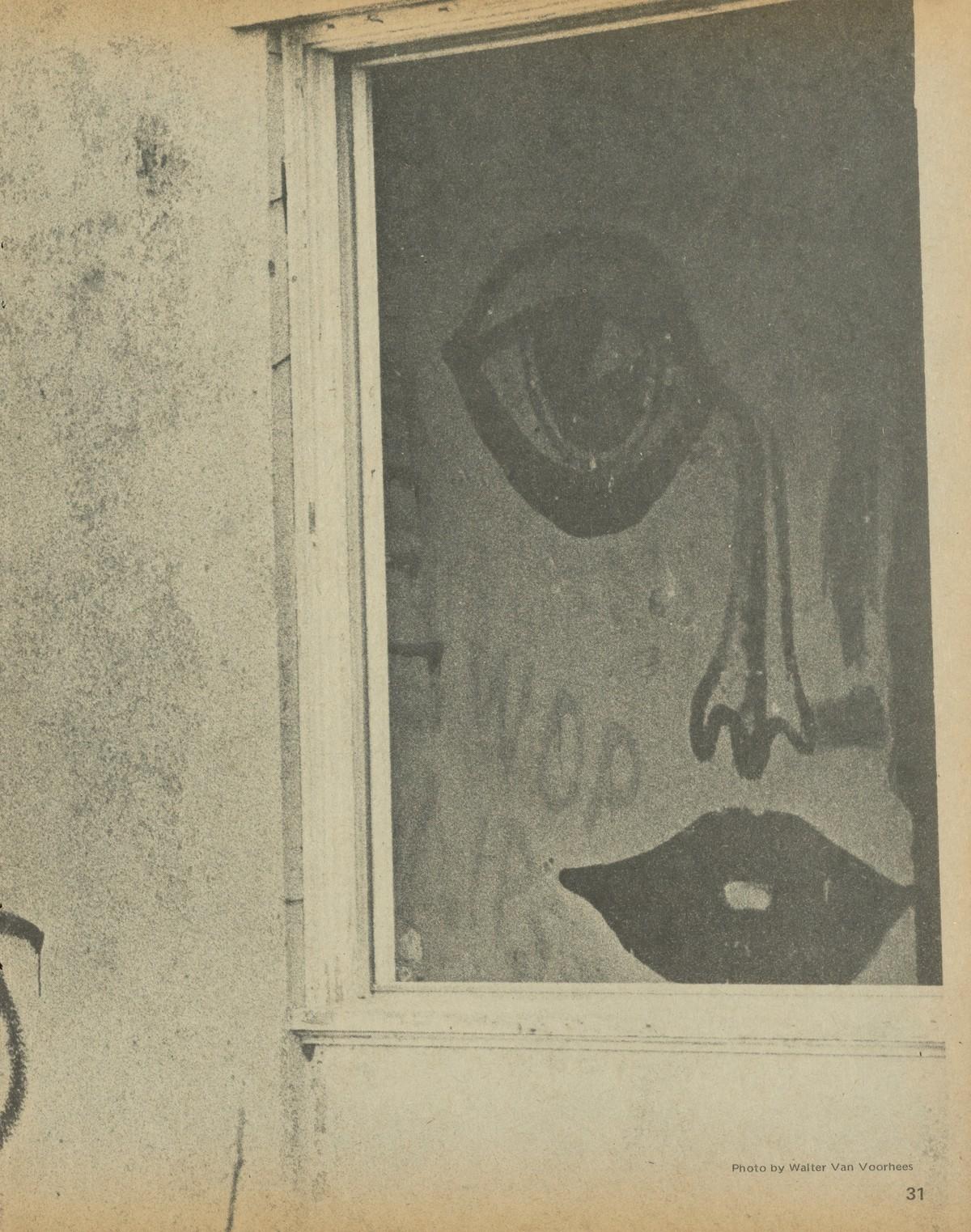
The night a friend of mine in California told me about Altamont, I was having dinner with a woman I’d met a week before — just when the crowd at the Speedway was beginning to gather, in fact. We sat in my apartment and listened to Let It Bleed, and as Mick Jagger sang out the climax of "Gimme Shelter” to Merry Clayton — "Love, sister, it’s just a kiss away, it’s just a kiss away” — I touched her for the first time. There were contradiction I enjoyed them as always, because: the Rolling Stones epitomized thing I loved most in the world of rock, and roll. I played their records all the time.
In the years after Altamont, however, l almost stopped listening to the Stones, and whenever I did listen the contradictions welled up in me. Admittedly, my: reaction was uncommonly intense, and most of those who shared it had always dug the Stones as symbols, not as a rock and roll group. Their response to Altamont was comparably abstract. As Mick Jagger told an interviewer recently: “Of course some people wanted to say Altamont was the end of an era. People like that are fashion writers. Perhaps it was the end of their era^ the end of their naivete. I would havfc thought it ended long before Altamont, ” Yet one must suspect an artist as subtle as Jagger of being disingenuous here, as if he were ever anything else. Writers focus on Altamont not because it brought on the end of an era, but because ft. provided such a complex metaphor for the way ah era ended


